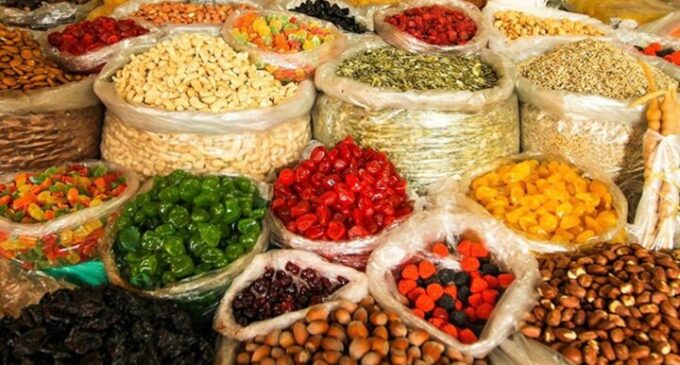
As the prices of essential food items continue to skyrocket, Nigerians face an uphill battle in their fight against poverty. The soaring food inflation has exacerbated the poverty situation in the country, leaving many struggling to meet their basic needs.
According to data released by the National Bureau of Statistics (NBS), Nigerians faced higher food prices in May 2023.
The survey, which includes staple food items like local rice, yam, tomato, bread, plantain, veggies, fish, beans, and others, was contained in the ‘Selected Food Prices Watch (May 2023)’ report released on Tuesday.
According to the data, Nigerians paid an average of N2,520 for 1kg of beef in May 2023, a 24.2 percent increase from N2,029 in the same period of 2022.
On a month-on-month basis, the average price of 1kg of beef (boneless) grew 1 percent to N2,520 in May 2023 from N2, 495.69 in April 2023.
The NBS said the average price of 1kg of tomato increased by 17.68 percent on a year-on-year basis from N423.48 in May 2022, to N498.34 in May 2023. The price of the item increased by 2.73 percent in May 2023, on a month-on-month basis.
According to the survey, the price of 1kg of local rice (sold loose) rose by 24.06 percent on a year-on-year basis from N447.51 in May last year, to N555.18 in the same in 2023. The study, on a month-on-month basis, noted that the cost of the staple jumped by 1.54 percent from N546.76 in April 2023.
Likewise, on a year-on-year basis, the cost of 1kg of onion bulb increased by 17.12 percent from N387.53 in May 2022, to N453.86 the same this year. The price also moved upwards by 2.83 percent on a month-on-month review.
“The average price of 1kg of yam tuber rose by 22.84 percent on a year-on-year basis from N372.23 in May 2022 to N457.25 in May 2023. On a month-on-month basis, it increased by 2.83 percent from N444.69 in April 2023,” NBS said.
Meanwhile, the May 2023 inflation report also documents the unrelenting upsurge in food prices, effectively reducing the purchasing power of some Nigerians.
The report had pegged the food inflation rate at 24.82 percent year-on-year. This was 5.33 percent points higher compared to what was recorded in May 2022 (19.50 percent).
The statistics body said the rise in food inflation was caused by increases in prices of oil and fat, yam and other tubers, bread and cereals, fish, potatoes, fruits, meat, vegetable, and spirit.
“On a month-on-month basis, the food inflation rate in May 2023, was 2.19 percent, this was 0.06 percent higher compared to the rate recorded in April 2023 (2.13 perecent),” the report had said.
“The average annual rate of food inflation for the twelve-months ending May 2023 over the previous twelve-month average was 23.65 percent, which was 4.97 percent points increase from the average annual rate of change recorded in May 2022 (18.68 percent).
“On a year-on-year basis food inflation was highest in Ondo (25.84 percent), Kogi (25.70 percent), Rivers (25.02 percent); while Taraba (19.55 percent), Sokoto (19.56 percent), and Plateau (19.89 percent) recorded the slowest rise in headline inflation.”











